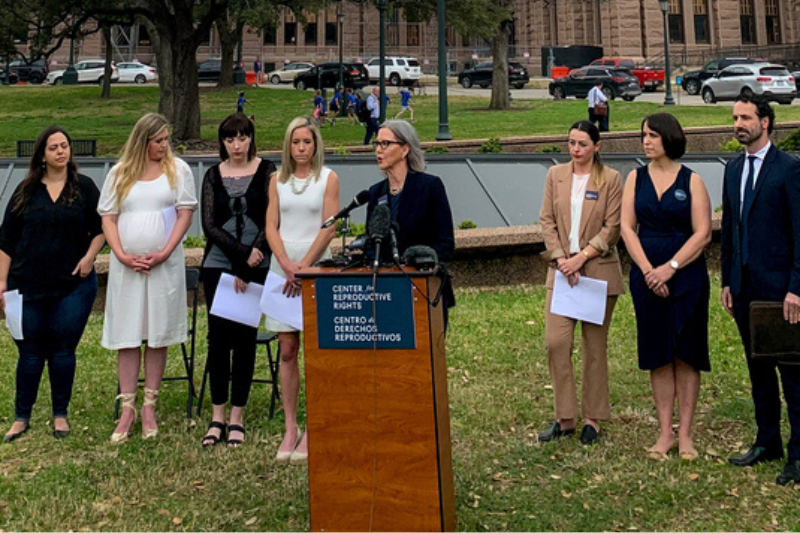
How Will the Texas Supreme Court’s Decision Impact Broader Reproductive Rights? A Reflection.
In a recent development, the Texas Supreme Court has issued a temporary block on a pregnant woman’s attempt to secure an emergency abortion, raising questions about reproductive rights and legal intricacies. The case revolves around Kate Cox, a 31-year-old woman seeking a court-ordered abortion due to severe health risks associated with her pregnancy.
Legal Maneuvers: Texas Supreme Court’s Decision
The Texas Supreme Court’s recent ruling temporarily freezing a lower court’s decision has ignited a contentious debate. Kate Cox, who is 20 weeks pregnant, sought the emergency abortion due to a fatal genetic condition diagnosed in her unborn baby, coupled with complications jeopardizing her health.
The court’s administrative stay, issued without delving into the merits of the case, leaves the situation in limbo. The lack of a specified timeline for a comprehensive ruling adds an element of uncertainty to Cox’s situation and raises broader questions about the intersection of reproductive rights and legal interventions.
Urgency of Medical Care: A Plea for Swift Resolution
Following the Texas Supreme Court’s decision, Cox’s attorney, Molly Duane, emphasized the urgency of the situation, stressing that they are dealing with urgent medical care. The plea underscores the broader issue of individuals needing to navigate healthcare decisions through legal channels, prompting a reconsideration of the role of courts in such matters.
Attorney General’s Opposition: Threats and Legal Challenges
Texas Attorney General Ken Paxton, a key figure in this legal saga, has actively opposed Cox’s request for an emergency abortion. Paxton’s petition to the high court sought an emergency stay of the district court judge’s ruling, framing the situation as lacking a “life-threatening” medical condition justifying the abortion.
Paxton’s warning to hospitals and physicians involved in the case, outlining potential civil and criminal liabilities, adds a layer of complexity. The threat of first-degree felony prosecutions and substantial civil penalties underscores the high-stakes nature of this legal confrontation.
Keep Reading
Cox’s Health and Reproductive Rights: Balancing Perspectives
Kate Cox’s situation epitomizes the delicate balance between an individual’s health concerns, reproductive rights, and the legal landscape surrounding abortion. Her plea for an emergency abortion centers around the diagnosed fatal genetic condition and associated health risks, presenting a case that challenges the strict abortion regulations in Texas.
The Debate Over Abortion Bans: Implications and Controversies
This legal battle occurs against the backdrop of Texas’s controversial abortion ban, one of the strictest in the nation, prohibiting abortions after six weeks. The recent ruling granting a temporary restraining order against the state’s ban marked a significant development, further intensifying the ongoing national debate over reproductive rights.
As the legal proceedings unfold, key questions remain unanswered. The temporary nature of the Texas Supreme Court’s decision leaves room for speculation about the future trajectory of the case. The potential ramifications on broader reproductive rights and the precedents set by this legal confrontation contribute to the complexity of the situation.
In conclusion, the Texas Supreme Court’s temporary block on a pregnant woman’s emergency abortion request underscores the intricate interplay between individual health, reproductive rights, and legal frameworks. As the legal saga continues, it prompts a reflection on the broader implications for reproductive rights in the United States.




